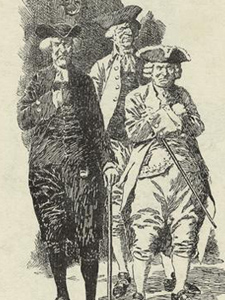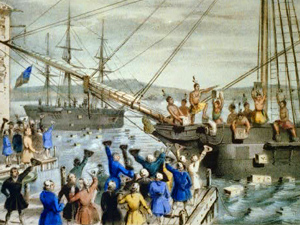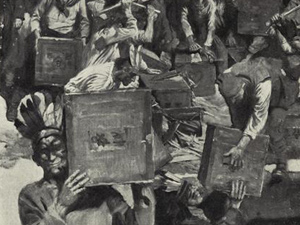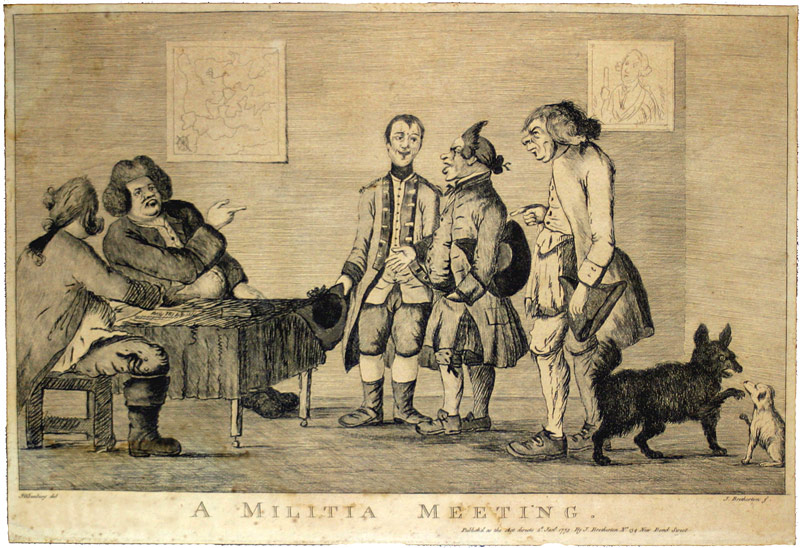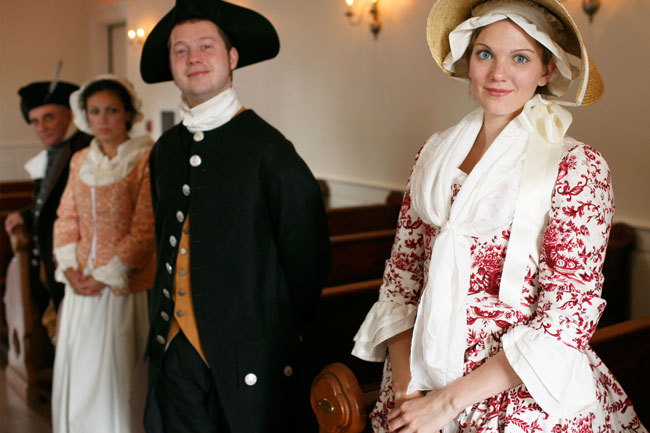December 17, 1773 to April 19, 1775: “The Aftermath”
Many of the Boston Tea Party participants fled Boston immediately after the destruction of the tea to avoid arrest. George Hewes remembered, “We then quietly retired to our several places of residence, without having any conversation with each other, or taking any measures to discover who were our associates… There appeared to be an understanding that each individual should volunteer his services, keep his own secret, and risk the consequence for himself. No disorder took place during that transaction, and it was observed at that time that the stillest night ensued that Boston had enjoyed for many months.” Only one member of the Sons of Liberty, Francis Akeley, was caught and imprisoned for his participation. He was the only person ever to be arrested for the Boston Tea Party. No one died during the Boston Tea Party. There was no violence and no confrontation between the Patriots, the Tories and the British soldiers garrisoned in Boston. None of the members of the crews of the Beaver, Dartmouth, or Eleanor were harmed. This was the first organized act of rebellion against British rule and the Sons of Liberty were very careful about how the Boston Tea Party was planned and executed.

